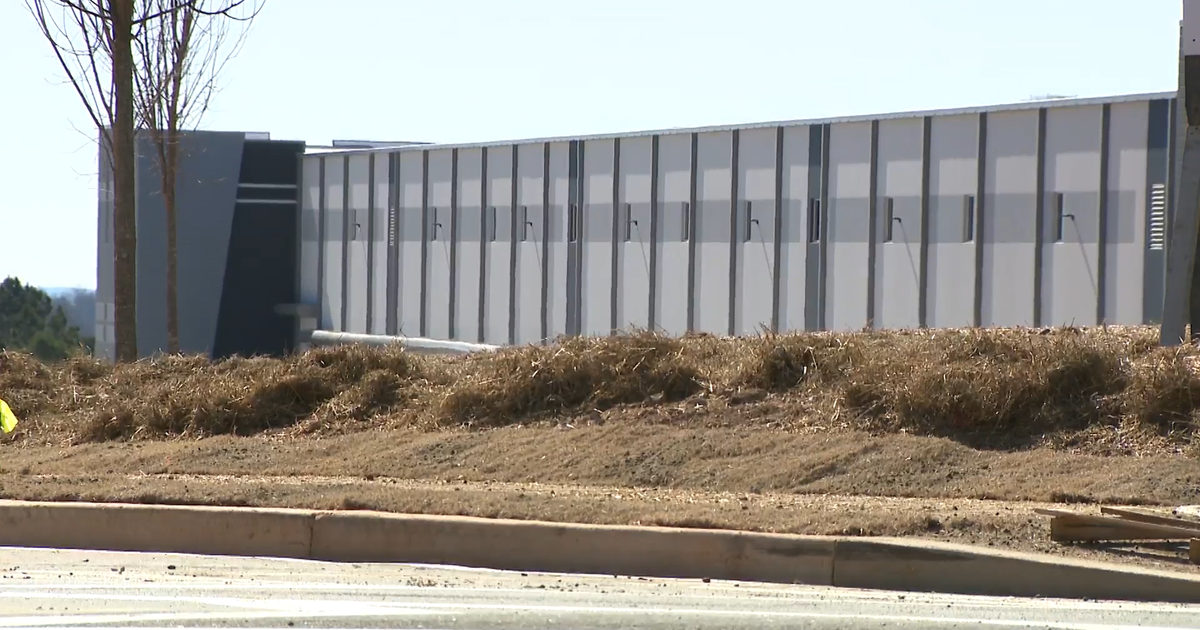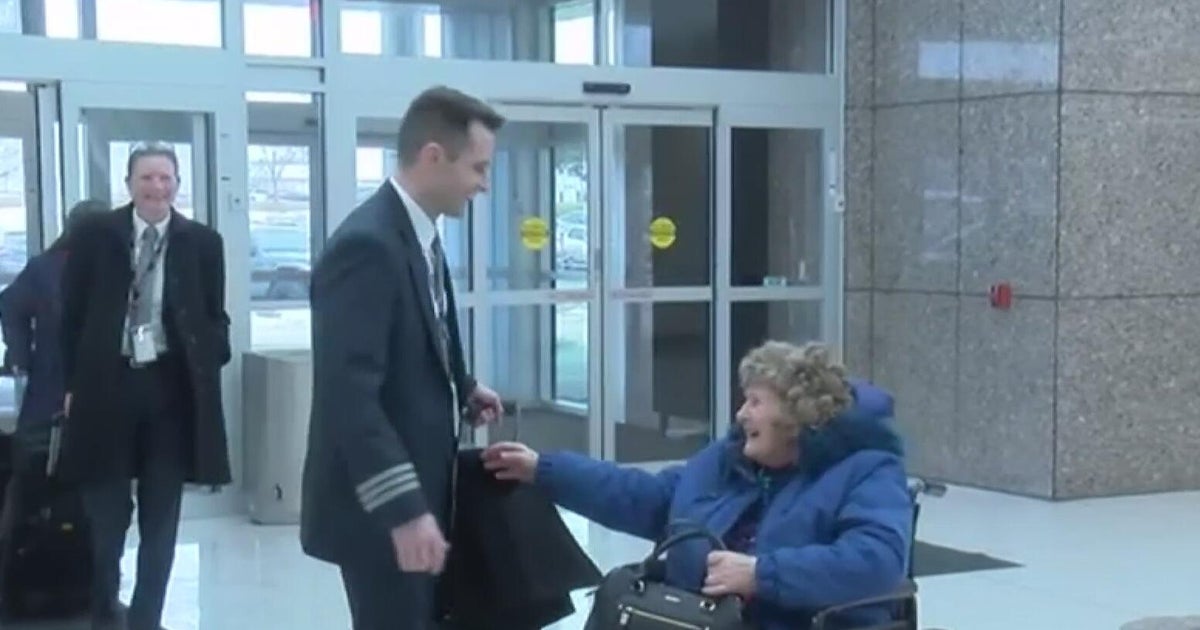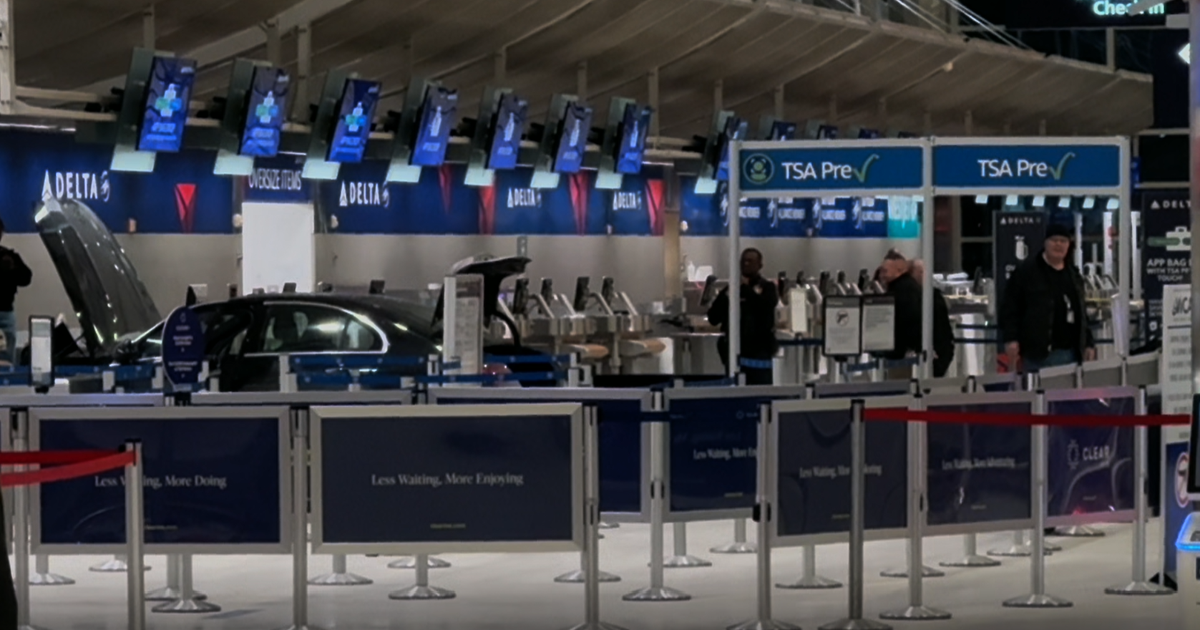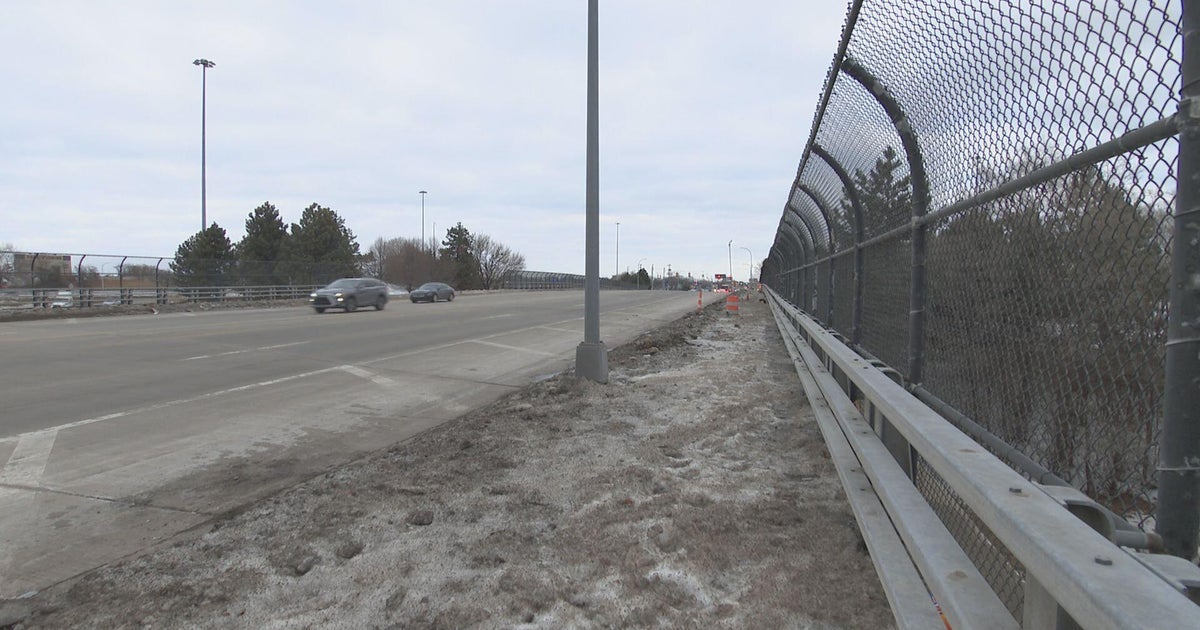DFW Air Traffic Controller Saves Pilot's Life
DFW AIRPORT (CBS 11 NEWS) - All she had to go by, were the green letters and numbers on a black screen in front of her, and the garbled radio call of a pilot headed north. LouElla Hollingsworth knew though that 27,000 feet above Texas, there was a plane in trouble that she had to try to save.
Looking back on the November call, there were signs, she said. The plane headed to Michigan, a Piaggio P180 Avanti didn't climb in altitude when she directed the pilot to move. She wondered if she had told him to or not. Then there was the radio that started clicking. Hollingsworth put out a call to other pilots in the hundreds of square miles of air space she was watching, from West Texas, over to Louisiana, to check their radios. They were all fine. Then she checked directly with N501PM, the twin-engine turbo prop, that can carry as many as nine people.
At first she only heard heavy breathing. Then came an unintelligible response. She could make out that the pilot said "pretty good," but he clearly wasn't.
"He probably had hypoxia," she said. "He didn't have enough oxygen. That was the first clue."
Hollingsworth isn't a pilot. She hadn't spoken to anyone with hypoxia before. She knew of it though, and the way it could creep up on pilots unexpectedly. She knew he could pass out. If he passed out, she said, he probably wouldn't wake up.
"Just talk to me," she said she was thinking. "I just want him to talk to me."
The told him to descend, but there was no response. A pilot from a Southwest flight joined the conversation.
"I don't know if you can hear that guy but he does not sound good," he said.
"Yeah I know," Hollingsworth responded. "And I'm trying to get him to start his descent if he can but he's not responding.
Another pilot chimed in with just one word, repeated. "Oxygen…oxygen."
The attempts to contact the pilot went on for several minutes. A recording shows the plane continued to move, quickly, to the northeast and into Arkansas. It didn't descend.
Hollingsworth said off the radio, there was a flurry of activity in the control room. An assistant took over contact with other flights. Calls went out to other sectors handling air traffic at lower elevations, tellimg them to move aircraft out of the way. They got clearance down to 18,000 feet.
"Five zero one papa mike," came the call over the radio. It was the pilot. She could understand him. Checking the numbers on the screen, it showed he was at 26,800 feet. He had descended.
"November five zero one papa mike, you're sounding a little better if you've got oxygen try that you can descend and maintain flight level one eight zero," she responded. She asked If he was feeling better.
"Yes we are, thanks for the help," he said. "For some reason the cabin altitude was showing okay but it uh we had some oxygen issues so, down to uh 18 or lowest we can get."
He still wasn't OK, confusing altitudes, and repeating instructions, but as he continued to descend he became more and more coherent.
Last week the National Air Traffic Controllers Association honored Hollingsworth with its Medal of Safety award. She was one of 12 controllers credited with a remarkable save. It was humbling she said, a big honor.
This week she received something else, a notice of furlough. Due to the nation's sequester, the series of spending cuts, she will have to take an extra day off, every few weeks to save the FAA money. She didn't want to bring it up. Her husband didn't mind though, saying he didn't understand how someone saving a life one day, might not be on the job the next time they're needed.
Also Check Out:
- Woman Uses Electrical Cord To Discipline Son Caught In Homosexual Act
- Lily The Rabbit Still Lucky With Only Two Legs
- Little Boy's Dancing Steals Spotlight at Rascal Flatts Concert
- Teen Killed By Oncoming Train In South Fort Worth
- Plano Police Warn Hispanic Men Of Violent Attacks
MOST VIEWED GALLERIES
- PHOTOS: Your Pet Pictures
- PHOTOS: 105.3 The Fan In New Orleans - Day 5
- PHOTOS: Top 10 Cars We Miss







